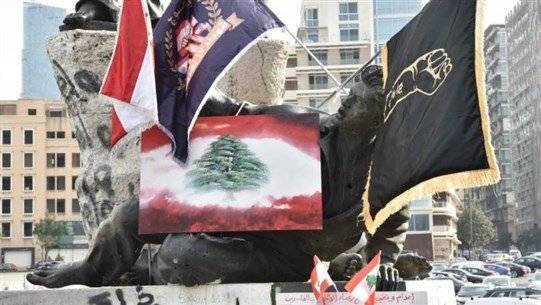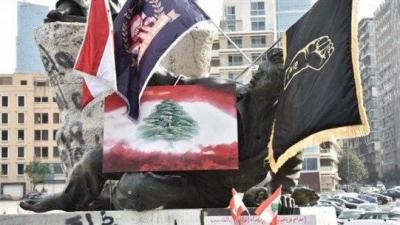There is no need to inform Saudi Arabia, France, or even the United States that the "Taif Agreement" is deficient. The deficiency began with the operationalization of the "National Accord Document" and its transition from paper to implementation. Many clauses were neglected, and some were distorted, while the practice revealed the obstructive aspect of the agreement at the expense of its productive side. It cannot be denied that after more than three decades since its inception, the agreement now requires a critical review to develop, improve, and restore its salvaging spirit, having become a burden on constitutional institutions. Therefore, it is essential for the Lebanese to sit at a round table to express collectively all their concerns, fears, and aspirations. Hence, every project has a first step.
Nonetheless, Saudi Arabia, along with some Lebanese parties, shows great concern for the agreement, making its adherence a fundamental condition for its political return to Lebanon while maintaining internal balances, particularly concerning the executive authority. This consideration may be one of the reasons that prompted Saudi Ambassador Walid Bukhari, in cooperation with the "Lebanese Forces," to criticize the dinner-dialogue that the Swiss Embassy decided to host among a group of partisan and independent politicians, due to its country’s commitment to the stability and political health of Lebanon, having previously played positive roles in this regard. It is worth noting that the overseeing entity of this dialogue project, the "Human Dialogue" organization, worked throughout the preparation period to enclose it within a wall of secrecy and confidentiality for its protection and success.
How did this idea come about? Observers indicate that this organization engages in political dialogue in over 40 countries and has extensive experience in the field. They point out that it began its activities in Lebanon in 2017 and has focused on this project for more than two years, following a comprehensive series of meetings that included various Lebanese parties, both official and unofficial, reaching civil society figures and those involved in public affairs. The conclusion of those bilateral meetings was that there is an urgent need to launch a political dialogue table not aimed at overthrowing or dismantling the "Taif Agreement," but rather to discuss how to fully implement its clauses, especially those that have not been applied, and to ensure stability in Lebanon at the political, economic, financial, and even international levels.
It is rumored that the organization’s officials conducted over 70 meetings prior to the parliamentary elections, specifically discussing what kind of dialogue meeting should take place to help end the ongoing deterioration. Most of those the organization met with expressed a wish to postpone the project until after the parliamentary election and to see what the democratic landscape would yield following the opening of the ballot boxes. On this basis, the organization resumed its activities after the parliamentary elections, reactivating communication bridges with various political forces and some independent figures to agree on a specific date to launch a "long-term" dialogue project, hosted by the Swiss state, while the "Human Dialogue" organization took charge of this project.
In reality, observers assert that the organization was careful to keep its activities away from media noise to avoid the "recipe" burning or being overloaded, especially since it is a long process that may require dozens of meetings and gatherings among the proposed dialogue group, which was planned to eventually settle in the Parliament to gain official status if an agreement was reached. They add that the distributed list of proposed dialogue names was not entirely accurate, as it included additional names such as former Minister Raya Al-Hassan, chosen for her financial and administrative expertise and her participation in numerous dialogue meetings.
They emphasize that the organization did not intervene in the dialogue agenda, paths, or items. It limited itself to a facilitative role without any destructive intentions, especially against the "Taif Agreement" and constitutional institutions. Therefore, a participant supportive of the project believes that undermining the attempt was inappropriate and only justified by the tension in the American-Saudi relationship, likely stemming from the Saudis' displeasure at being sidelined from the border agreement that Washington crafted independent of its partners in the Lebanese file.
In conclusion, the project is still ongoing; it has not been halted but postponed for some time until discussions are completed and the ambiguities raised concerning some local and regional forces are clarified.




